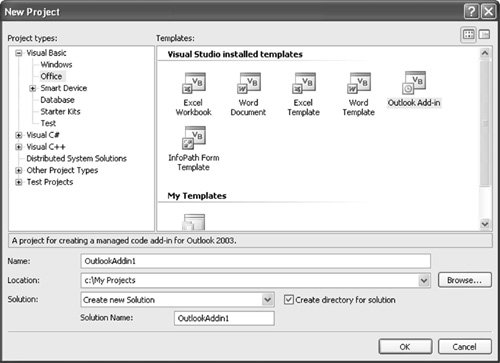

For more information about Globals.Factory, see Global access to objects in Office projects.

For example, to get an object that implements the xref.SmartTag interface, use the method. To create objects that implement these interfaces, use methods provided by the Globals.Factory object in your project. The only interfaces you can implement directly have names that begin with the letter I, such as xref.ISmartTagExtension.Īll interfaces that do not begin with the letter I are implemented internally by the Visual Studio 2010 Tools for Office runtime, and these interfaces might change in future releases. Most of the interfaces in the Office extensions for the or later are not intended to be implemented by user code. Interfaces in the Office extensions for the.

For more information, see Migrate Office solutions to the.
Visual studio vsto code#
However, certain features require different code when you target different versions of the. In most cases, the code you write in Office solutions is the same whether your solution targets the. For example, when you target the or later, the xref.Worksheet and xref.Document types are interfaces instead of classes. In contrast, most of the types that you use in the Office extensions for the or later are interfaces. These are the same classes that were included in previous versions of the. Most of the types that you use in the Office extensions for the. Design differences in the Office extensions For more information about the assemblies in the Office extensions, see Assemblies in the Visual Studio Tools for Office runtime. When you create an Office project, Visual Studio automatically adds references to the assemblies that are used for the project type and the target. These extensions consist of assemblies that your solutions use to automate and extend Office applications. NET Framework use the appropriate extensions for that version. Solutions that target each version of the. The Visual Studio 2010 Tools for Office runtime includes Office extensions for the. Understand the Office extensions for the. For more information, see Visual Studio Tools for Office runtime installation scenarios.
Visual studio vsto install#
Depending on the configuration of the computer, different runtime components are installed when you install the runtime. The runtime can be installed in several different ways. For more information, see Understand the Office solution loader. This component is a set of unmanaged DLLs that Office applications use to load the runtime and your solutions. For more information, see Understand the Office extensions for the. These components are managed assemblies that provide the communication layer between your solution and the Microsoft Office application. The Visual Studio 2010 Tools for Office runtime consists of two main components: For more information, see How to: Install the Visual Studio Tools for Office runtime redistributable. To run solutions that are created by using the Microsoft Office developer tools in Visual Studio, the Visual Studio 2010 Tools for Office runtime must be installed on end-user computers. Visual Studio Tools for Office runtime overview


 0 kommentar(er)
0 kommentar(er)
